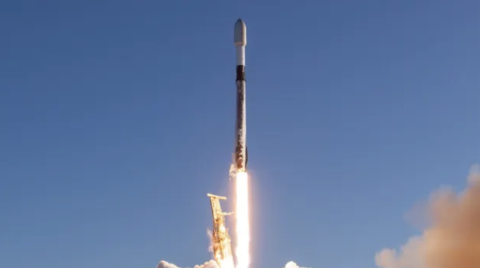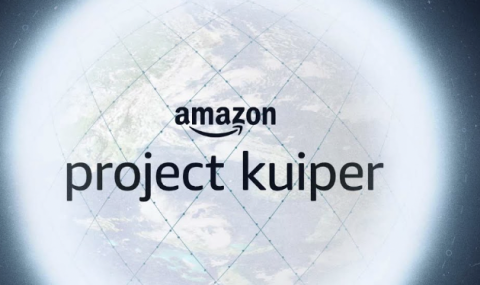Amazon and SpaceX: A Strategic Partnership for Space Internet
December 19, 2023In a surprising move, Amazon announced earlier this month that it has secured three rocket launches from SpaceX for its ambitious Project Kuiper, designed to compete with Elon Musk's Starlink in the satellite broadband market. This unexpected collaboration comes after Amazon previously ordered launches from three of SpaceX's main competitors, including Jeff Bezos' Blue Origin, sparking controversy and a shareholder lawsuit against Amazon earlier this year.
The rivalry between tech titans Bezos and Musk has been a focal point in the space industry. However, this deal demonstrates a pragmatic approach by Amazon in leveraging SpaceX's proven capabilities in rocket launches. Despite Bezos founding both Amazon and Blue Origin, the companies operate independently, and the latest move reflects a strategic decision to ensure the timely deployment of Project Kuiper's satellites.
SpaceX, renowned as the world's most active rocket operator, has consistently expressed its commitment to launching Starlink competitors on its rockets. The company has already launched broadband satellites for various companies and secured deals for future launches. The newly announced collaboration with Amazon involves three Falcon 9 launches scheduled for mid-2025, with undisclosed financial terms.
Why Amazon Chose to Work with SpaceX
In a surprising turn of events, Amazon's decision to collaborate with SpaceX for its Project Kuiper reveals strategic considerations beyond the traditional competitive landscape. The following factors shed light on why Amazon opted to work with SpaceX:
- Pragmatic Approach to Timely Deployment
Amazon's commitment to meeting Federal Communications Commission (FCC) regulations, requiring the deployment of half its planned 3,236 Kuiper satellites by July 2026, drove the company to seek a reliable and suitable launch solution. SpaceX's proven track record in rocket launches and ability to meet tight schedules likely played a pivotal role in Amazon's decision.
- Flexibility Amidst Competitor Delays
Facing delays in developing rockets from other providers, including Blue Origin, Amazon demonstrated flexibility by adapting its launch strategy. The need for timely satellite launches led Amazon to explore alternative options, ultimately turning to SpaceX to ensure the progression of Project Kuiper.
- Recognition of SpaceX's Industry Dominance
SpaceX's position as the world's most active rocket operator and its commitment to launching Starlink competitors made it an attractive choice for Amazon. Recognizing SpaceX's dominance in the industry, Amazon strategically aligned with a critical player to navigate the complex landscape of satellite broadband competition.
How This Partnership Could Potentially Affect the Future of Internet Providers
The collaboration between Amazon and SpaceX for Project Kuiper's rocket launches introduces a new dynamic to the evolving landscape of internet providers and satellite broadband. The implications of this partnership extend beyond the immediate project and could influence the future of Internet services in several ways:
- Accelerated Competition in Satellite Broadband
With both Amazon's Kuiper and SpaceX's Starlink representing multibillion-dollar efforts, their collaboration intensifies the competition in the satellite broadband market. The shared resources and capabilities could lead to advancements that benefit consumers, governments, and businesses seeking reliable high-speed internet services.
- Innovation and Technological Synergy
The collaboration fosters innovation and technological synergy between the two tech giants. Combined expertise in satellite technology, space exploration, and broadband services could pave the way for breakthroughs that enhance the efficiency and capabilities of satellite internet, potentially setting new standards in the industry.
- Market Influence on Regulatory Policies
The success of Project Kuiper's collaboration with SpaceX may influence regulatory policies governing satellite broadband. As Amazon and SpaceX navigate the regulatory landscape together, their experiences and outcomes could shape future policies, impacting their ventures and the broader industry.
-Consumer Benefit and Global Connectivity
Ultimately, the collaboration aims to benefit consumers by providing enhanced satellite broadband services. The successful deployment of Kuiper's satellites through SpaceX launches could contribute to global connectivity initiatives, bridging digital divides and bringing high-speed internet access to underserved regions.
Conclusion
the Amazon-SpaceX partnership represents a significant step forward in developing space-based internet. This collaboration promises to bring faster, more affordable internet to millions of people worldwide while sparking further technological advancements and reshaping the future of the internet landscape.
Want to know more about space exploration or the satellite broadband market? Capitol Technology University offers degree programs in Doctor of Philosophy (PhD) in Space Operations, Master of Science (MS) in Aviation, and other Aviation and Astronautical Sciences programs. For more information, contact admissions@captechu.edu or visit captechu.edu




